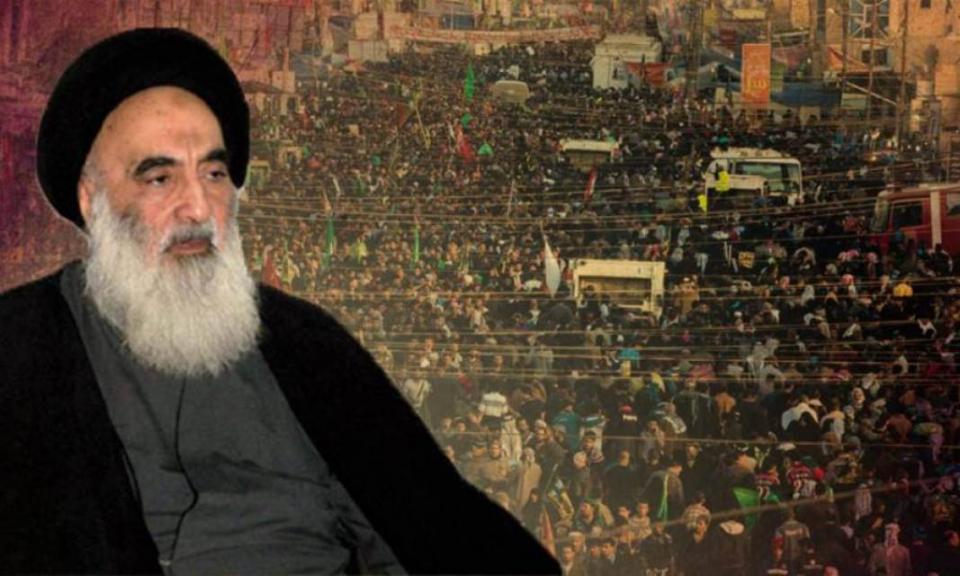26 MAY 2021
POSTED BY SAM FIELD Second in a series of World Religion News articles on great religious leaders of our time.
In His Own Words
Islam and society’s values. — Ayatollah al-Sistani, in a fatwa (holy edict) that he issued during the early years of the U.S. occupation of Iraq following the 2003 Iraq War, outlining the scope of U.S. authority in shaping Iraq’s future.
“Please don’t do this. Please be civilized. We don’t want to start a civil war. This is the most important point.” — Ayatollah al-Sistani’s 2004 response to a major Iraqi politician and the scion of a prominent religious family, Muhammad Bahrul-Uloum, who was so frustrated by the large-scale killings of Shiites by Sunnis in Iraq that he confronted the Ayatollah by angrily striking his cane on the ground and yelling, “We’re not going to have our families attacked by terrorists. Everything has its limits. Once that limit is passed, all that is left is God and your weapon.” Bahrul-Uloum bowed to al-Sistani’s request.
“Noble Iraqis, after more than three years of fierce fighting, precious efforts and challenges, you have achieved victory against the most powerful terrorist force that targeted Iraq in its past, present and future. You were victorious with your firm will and firm determination to preserve your country, your dignity and your holy places. You were victorious with the tremendous sacrifices of yourselves and all that you hold precious for the dear homeland; you have established the highest images of heroism and altruism and you have written the history of modern Iraq with letters of dignity and nobility, and the world stood in astonishment at your determination and patience and heroism and faith in the justice of your cause until this victory was achieved, which many thought was out of reach.
But you made it a tangible reality within a relatively short period, you have preserved the dignity of the country and its pride and maintained the unity of land and people. How great a people you are, the veteran fighters the heroes of the armed forces of all types and classifications.” — Ayatollah al-Sistani, in a December 15, 2017, prayer sermon from Imam Al-Hussein Shrine, where he indicated that weapons should be under the control of the state and that armed groups should steer clear of political participation now that major combat against the Islamic State has ended. “This decision is denounced and condemned. It has hurt the sentiments of hundreds of Arabs and Muslims, but it will not change the fact that Jerusalem is an occupied land that should return to the sovereignty of its Palestinian owners no matter how long it takes.” — Ayatollah al-Sistani, in a December 2017 statement regarding the decision by the United States to recognize Jerusalem as the capital of Israel.

